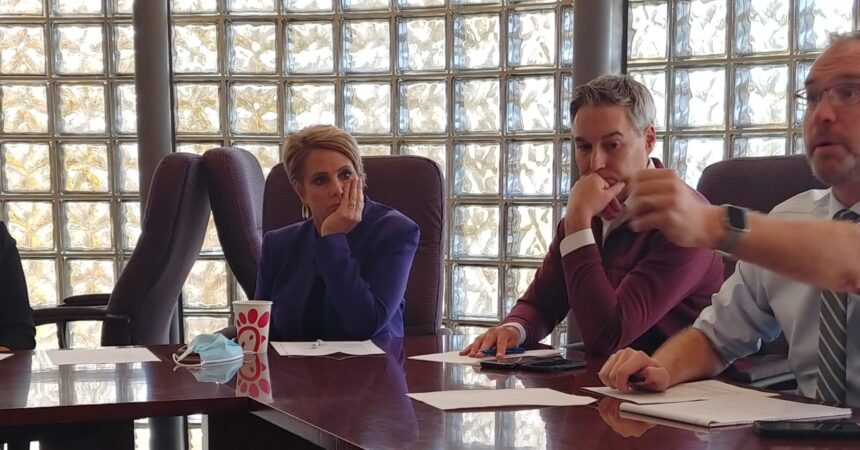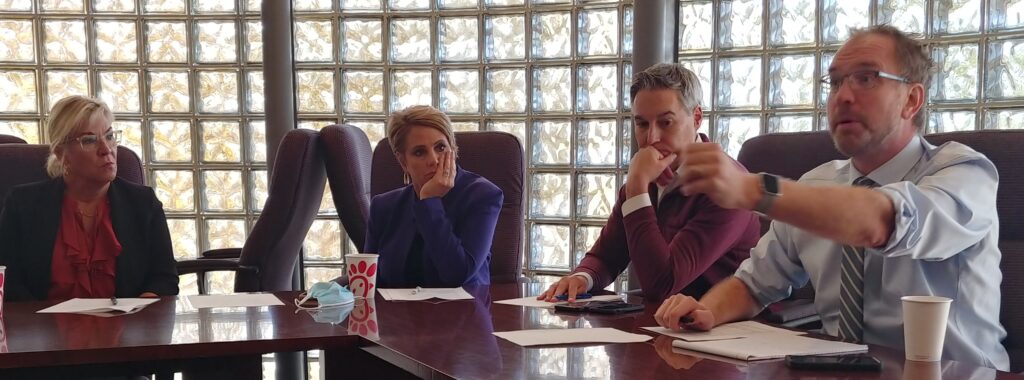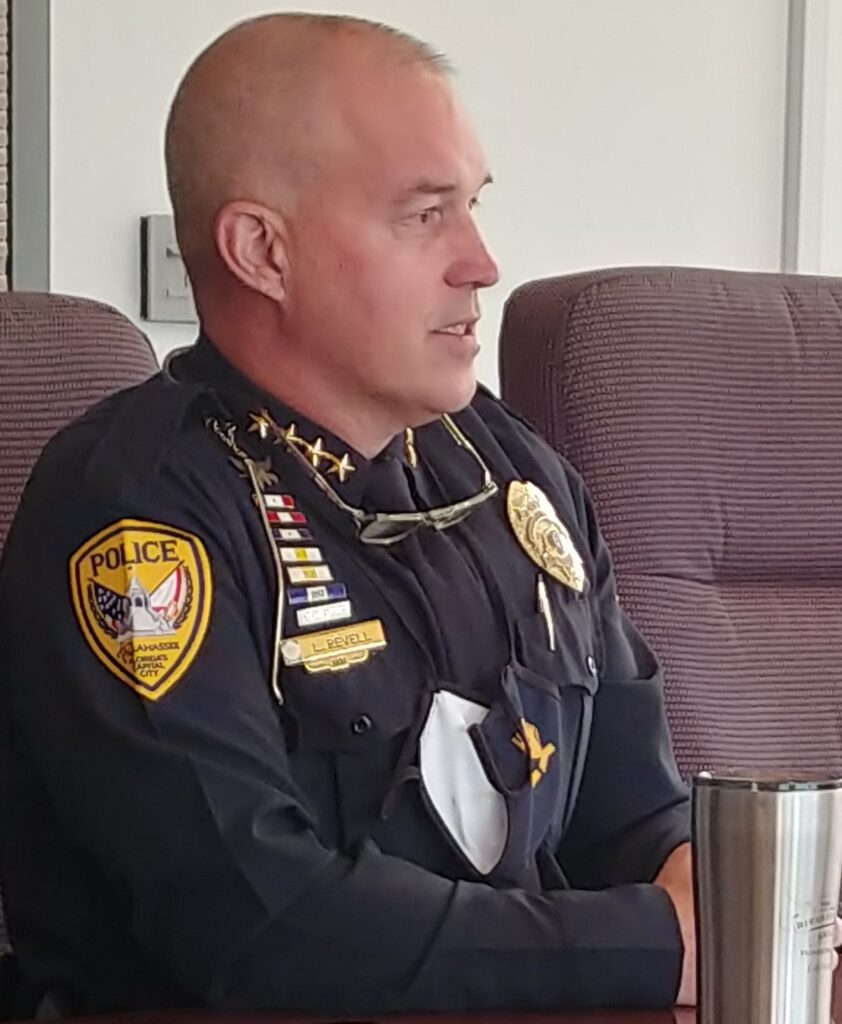
TPD Chief steps back from guidelines that cause ‘angst’ in media

Photo by St. Clair Murraine

Photo by St. Clair Murraine
By St. Clair Murraine
Outlook Staff Writer
Members of the media aren’t the only ones who were caught off guard by new information guidelines by Tallahassee Police Department. Community advocates who rely in part on what’s reported to help console victims of crimes also expressed concern.
Nine days after the “incident report” guidelines were sent by email to the media, TPD Chief Lawrence Revell issued an in-person apology to representatives from five local news outlets. During the meeting at TPD headquarters that lasted almost 90 minutes, Revell said the changes that are supposed to be immediate will not take effect until some tweaking is done.
TPD spokesperson Alicia Turner even suggested that monthly meetings with the media could be a possibility. Such a meeting should have happened before the guidelines went out, the chief said.
“We dropped the ball here,” Revell said. “We did not follow our processes.”
Report of Revell’s willingness to admit that he might have moved too swiftly on issuing the new guidelines, is proof of his leadership, said Rev. RB Holmes, publisher of the Capital Outlook.
“I commend chief Revell and his team for meeting with the local press to clarify TPD’s public information policies,” Holmes said in a statement. “This was the right approach to ensure that the police department will always give the media and community accurate information regarding police shootings and other related matters. We are encouraged by the chief’s decision to continue to support the spirit of transparency. He is a man of his word.”
During the meeting, Revell also acknowledge that the email caused “undue concern and angst” among the media and the community, but he added that “this is just how we are trying to move forward and do some things.”
He also admitted to hitting the send button on the email before informing city commissioners and the city manager.
Following the meeting, WCTV and the Tallahassee Democrat issued a joint report. Representatives from the Capital Outlook, WTXL and WFSU also attended the meeting.
Revell said he is so committed to transparency that he offered his cell phone contact to anyone in the room who wanted it.
“We have nothing to hide,” he said. “If we are going to be transparent we are going to be transparent. We are not trying to do anything but to get the information to you and the citizens in a way that works for all of us.”
The report by WCTV and the Democrat point out the term “open and active” investigation and referenced how reporters were asked not to follow up on information posted online. The timing of calls seeking information also was another question put to Revell.
At one point, Julie Montanaro, an evening news anchor with WCTC, made an emotional case for loosening time restraints outlined in the guidelines. She used details of a story about a shooting that she covered on the Southside, telling how a grandmother was shaken up over having to shield her grandchildren from violence.
Having information to share with the grandmother would have been comforting, Montanaro said.
“Those are the people that I’m reporting for,” she said. “I want them to feel safe in their homes and if there is information that can help them that’s what I want to deliver.”
While Montanaro said the tone of the TPD document offended her, it also caught the attention of neighborhood leaders. Talethia Edwards, who helped the families of Tony McDade and Malik Jackson, who were victims of a stabbing and police shooting, wondered about the suggested changes.
Edwards organized a prayer vigil/call to action event after the incident rocked the Bond community.
She also had to help the families maneuver misinformation and where it was coming from. At the center of it was the pace of TPD’s slow release of a video on the incident.
McDade, who was shot by a TPD officer, was a suspect in the stabbing death of Jackson. Timely information could have helped eased the tension that overtook her community for several weeks, she said.
“I think it’s vital,” Edwards said. “I get the safety part about not having information. When we talking specifically about the Tony McDade situation for a community it’s really difficult. When the community was asking for information to release the video tape and did she or did she not have a gun. Those things hold very passionate people back.”
Whitfield Leland, whose Community Roundtable of Tallahassee 850 helps crime victims find resources, said transparency always surfaces when TPD is slow to release information. Admitting that it’s an issue he’s taken up with TPD over the years, Leland said communication is essential for change to happen.
“We have to have a relationship with the police,” he said. “We just have to.”
William Hatfield, executive editor of the Democrat, used the forum to explain the context that in-depth information from TPD gives to a story.
“That context is why we call when we see the incident report,” Hatfield said. “It is one thing for a member of the community to see when something happens in a block of the street but it’s a whole other thing to understand if this happened in a movie theater.”
Asking for more information is primarily about telling people what they need to know, he said.
“We have a shared mission,” he told Revell. “We are both held accountable by the citizens of Tallahassee. They are coming to you. They are coming to us and that’s what drives us all; the transparency in public safety.”







